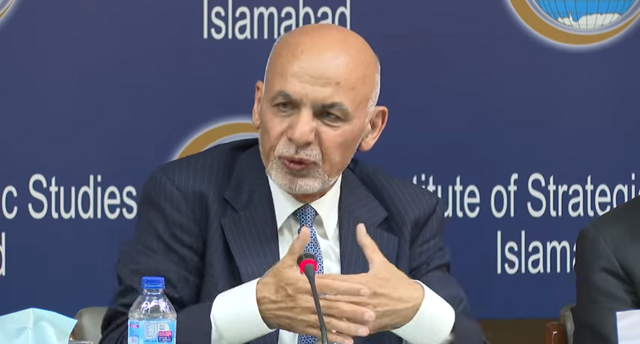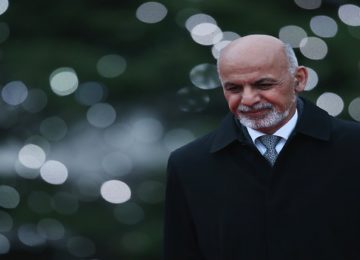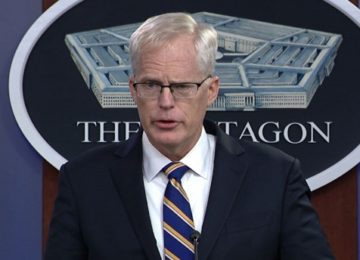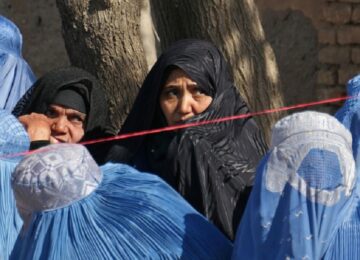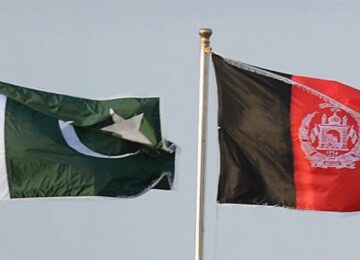June 28, 2019
By Aized Ali
Afghan President Ashraf Ghani, in an articulate and analytical speech, stated that this was the “dawn of a new era of friendly bilateral relations between Pakistan and Afghanistan through seeking a relationship of equality and cooperation between the two sovereign states by developing systematic mechanisms for political, trade, energy and peace and prosperity cooperation”. He added, there was a need to build a mutually beneficial relationship for stability and prosperity. He was speaking at the Institute for Strategic Studies Islamabad (ISSI), Islamabad, accompanied by Pakistan’s Foreign Minister Shah Mahmood Qureshi, earlier this week.
Ghani, referring to his meeting with Prime Minister Imran Khan, appreciated his vision of the empowerment of the least privileged in society, trade connectivity for economic development, energy cooperation, and for peace and security of both the countries. Following his interactions with Khan, Qureshi, and the Chief of Army Staff (COAS) General Qamar Javed Bajwa, Ghani emphasized that “our agenda is not of competition, but it is an agenda of cooperation”.
On trade and economic connectivity, he said we have the infrastructure, but we need to develop a better bureaucratic cooperation to remove hindrances faced by traders. Karachi and Gwadar can become the gateway for connectivity not only to Afghanistan but also to Central Asian Republics.
On energy cooperation, Ghani said that he is happy to announce the good news of a breakthrough in the TAPI (Turkmenistan, Afghanistan, Pakistan, India) gas pipeline project, and the work will start in the next two months on the project. Speaking of CASA 1000 (Central Asia-South Asia power project), he said that through private-public partnership, by having a private firm which is interested in investing $1.6 billion on the energy project, it has the potential of producing 50,000 MW for export of surplus hydroelectricity from Kyrgyzstan and Tajikistan to Afghanistan and Pakistan, and to South Asia.
Ghani told the audience that through his recent interactions with Pakistani leadership, they have developed a joint mechanism for three tiered task forces: leadership, ministerial, and technical.
Regarding peace in Afghanistan and the region, Ghani said “the threat of terrorism and radicalism needs to be dealt with jointly”. He added that citizens of both nations should enjoy physical, human, social, and economic security.
Speaking on the Taliban peace process, Ghani said that it will happen through a “political inclusion strategy”, as we recognize them to be a part of our society. He further said, referring to the recent “Loya Jirga” held in Kabul, that the mandate of “Loya Jirga” is to find a political process to a solution for enduring peace, and consultative discussions have been positive. He recognized and appreciated that Pakistan has played an important role in the Taliban peace process.
At the end of his speech, President Ghani said that in his meeting with both the Khan and Qureshi, they mutually acknowledged that the “road would be bumpy”, but he said, “all strategic decisions are bumpy, that is an inherent in the nature of strategy in a time of uncertainty. We have to take uncertainty for granted; we are going to require capacity to devise joint solutions and terms of reference, and if we meet bumps, we will not fault or blame each other, but use our common collective to overcome bumps”.
“We need not to look back, but only forward,” he concluded. This last statement well encapsulates the overall outlook for Afghanistan-Pakistan relations, and may be the dominant strategy in bilateral efforts.
Aized Ali is the Director for the Beyond Boundaries program at the Center for Research and Security Studies. He can be reached via email: aized@crss.pk.



